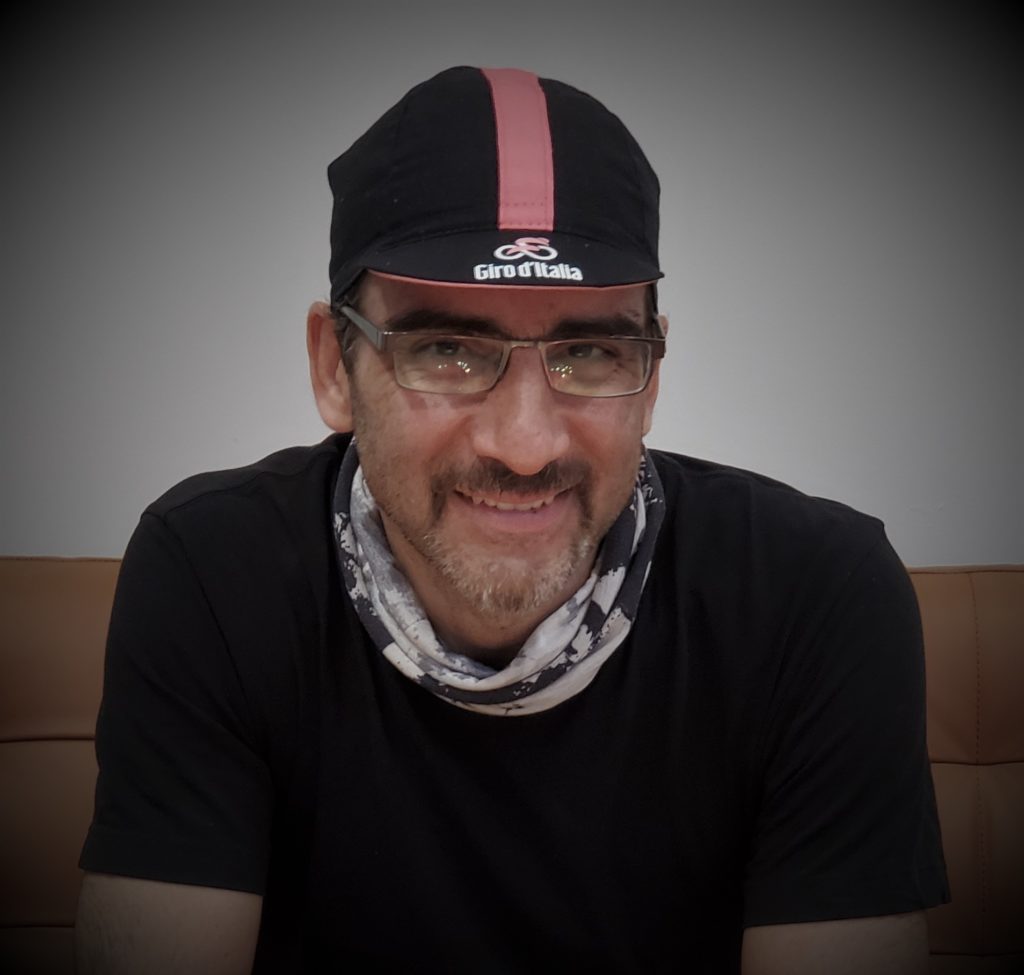NET
POSITIVE
ADVOCACY
"Indifference Facilitates Exploitation"
VISION
Net Positive is a movement founded on the ancient ideal of “giving back to the world more than we take from it.”
This concept starts with individuals and expands to communities, NGO organizations, small companies, large corporations, local, regional, and national governing bodies, and multilateral organizations such as the UN and its subsidiaries.
We are collectively responsible for examining frameworks of thought, existing business models and practices, and governing strategies and programs toward reconstructing a world where all its inhabitants and ecosystems are cared for.
Individuals such as you and I are called to mindset transformation; the CEOs are tasked to inspire their board of directors and investors to innovate and drive systemic, systematic, wide-spread, and deep transformative change in their business models and practices; the board of directors are obligated to support long-term profit strategies rather than short-term shareholder primacy models; business as a whole is to consider its positive and negative impact on the environment and all members from supply chain to the customer, from source to end life of its products; the governing bodies are mandated to revise the existing regulations and laws to implement and enforce requirements and standards that benefit all members of the society and the environment we live in. These implementations must take place without any further delay.

Net Positive is an implementable ideal that considers the well-being, prosperity, and health of all stakeholders- humans and the environment- in any business or social infrastructure. All it takes is that you and I re-examine our mindsets and commit to active transformation; subsequently, we will transcend the current and future challenges such as climate change, social and economic inequality, and global water, food, energy, and health crisis.
My vision for creating this platform is to provide a safe space for individuals to share their visions, strategies, and success stories to inspire others and promote net positive transformation.
I envision a world of communities that manifest and promote inclusion and forward-thinking, individuals who strive to build a different world, one that evolves based on the conviction to improve the quality of life for all members of our Earth system.
Join and help me to inspire, transform, and transcend, individually and collectively.
Payman Janbakhsh, Ph.D.
“Our natural tendency to place the possible in the past means that we often overlook the act of our contemporaries who defy the presumably unmovable order of things and thus accomplish what at first has seemed impossible.”Czesław Miłosz
What Made Mandela Into madiba?

The Net Positive concept promotes the mindset and lifestyle of giving back to the world more than we take from it. Millions of individuals have adopted and practiced the concept in their personal life as well as implementing it in their organizations and business models and practices, some of whom never became known to the global community; however, the impact of their pioneering efforts in their fields have profoundly improved the quality of life of many.
These individuals have strived and fought for human rights, social and economic equality, business and religious reformations, and raised awareness to address environmental and planetary threats such as climate change and the water and food crisis. Collectively we owe them the obligation and accountability to carry out change wherever we are; the change that is systemic throughout any system and its subsystems; systematically implemented throughout the business, governance, and social infrastructures; widespread across all its subsystems, processes, practices, strategies, and regulations; and profoundly transformative.
Instances of such transformative deep changes led by great minds have been numerous in recent years. In business, for instance, individuals such as Andrew Winston and Paul Polman have been raising global awareness and mobilizing collaborative efforts of business CEOs and executive directors to implement net positive strategies in business frameworks across private and public sectors, frameworks that profit all stakeholders without prejudice.
Likewise, thousands of scientists have promoted the concept through their relentless contributions, such as the compilation of IPCC reports to warn us of the impending climate threats and have continually called for action. Climate activists are advocating for science-based, adequate, and swift actions.
Human rights activists, such as human rights lawyer Nasrin Sotoudeh have been contesting the governing bodies in their countries to treat all humans equally and justly. They have traded their freedom to be the voice of the voiceless and, as a result, have been unlawfully and unjustly detained in prisons. Individuals, communities, small businesses, and many NGOs are giving back to the world more than they have received from it because they have made it their mandate to do so. The uni- and multi-lateral governing bodies are not as efficient as they should be; this is why the resourceful, creative, innovative, and agile private sector can and is expected to take the lead and invest adequate resources.
Are you not tired of witnessing social and economic inequality and prejudice? Are you not tired of watching natural resources being exploited and robbed of future generations? If you have ever lived in underprivileged conditions afflicted by established systems of discrimination, you must be compelled to change the conventional order of things. If you are privileged to enjoy conditions based on codes of equal rights and freedom, then you must find it deep inside the conviction to act on behalf of those divested of those rights. The underground railroad was established and operated by courageous and privileged individuals who felt compelled to provide freedom and quality of life to those deprived of such. Their pioneering and risk-taking endeavour changed the governing systems and status quo. A systemic effort for freedom challenged another region's systemic failure in social norms and infrastructure and eventually prevailed. The underground railroad was not an abstract ideal. It was an operation. An operation by which few free individuals provided freedom to many. That is the net positive concept in action.
Individuals such as Mandela lived under decades of human rights violations and privation. In the end, Mandela provided the freedom of rights, equality, and a chance at a harmonious co-existence to millions of people once separated by ethnic and racial prejudice- the freedom he never had; his life manifested the ideal.
Accepting the unjust treatment and neglect of other humans is social and moral negligence, whether done through business, organization, or governance. Conceding with the exploitation of natural resources is conformity with bigotry, indifference, and prejudice that will manifest through the despair and potential demise of future generations.
Compliance with the present extent of global, regional, and local environmental harm will inevitably threaten the quality of life of generations to come and widen the chasm of social injustice- is the current state of adequate and affordable access to clean water in many regions not a form of regional and global social injustice?
To be indifferent in the face of misuse of natural resources is to passively intensify the current and future global crises, such as freshwater and food scarcity and distribution. Indifference facilitates exploitation. While some stick their heads in the sand and pretend they are secure and immune to the adverse impacts of present systemic flaws, others exploit with impunity- is the Amazon deforestation not an example of such systemic flaws?
The obscurity in recognition of the connections between these issues arises from our inadequacy to see the connections between these subsystems- humans, environment, governance, and business- they are all connected if we look without bias.
Change is not inevitable; it has never been. Change is the outcome of decisive actions with a clear purpose, and we are called to action. Every one of us, economically and socially privileged, is obligated to take it as a personal, social, and corporate responsibility to change the aging order of things by reforming the flawed business models and indifferent governance frameworks. We are obligated to invest our resources to tackle economic, gender, age, race, ethnicity, and all other forms of inequality underpinned by prejudice or apathy. As individuals, communities, and corporations, we are obligated to create societies that protect the environment, adequately provide, support, and secure quality of life, and reform the failing frameworks that take away the quality of life from present and future generations.
Giving back to the world more than we have taken from it is not an abstract ideal; it is a purpose to adopt. Net positive thinking starts with you and me.
Payman Janbakhsh
HUMAN
RIGHTS
Freedom is a vague concept to define and describe qualitatively and even more so to measure the impacts of its absence or implementation quantitatively. On the other hand, the established framework of principals, precedents and laws, such as constitutions and cultural norms, are often used as systems of reference to present the concept of freedom and its derivatives.
The governing laws, established by the authorities or organically accepted as society’s norms, are defined, implemented, and measured in these reference systems. As one moves from one system to another, the constitutions and cultural norms may vary along with the metrics by which they are measured. Freedom is a concept that takes on a non-unique definition and perception in each of these reference systems. In one community, irrespective of its size and sphere of influence, freedom may be defined by its constitution and precedents in such a way that the same concepts might be outrageously unconstitutional or culturally taboo if transferred to a different system in another community.
To remove the ambiguity surrounding the concept of freedom, we must produce a set of codes that are universal and quantitatively measurable. A collection of constitutional rights on a global scale and not limited to geopolitical or socio-demographic confinements. In addition, we must establish mechanisms to oversee their implementations by the governing bodies and establish judicial processes to hold the violators of these rights accountable. These rights should evolve with time accordingly and continuously to benefit all members of the respective communities and the human race.
The following is a short list of rights that every member of any society should be entitled to and provided with by the governing bodies in their communities.
1- Adequate access to clean and drinkable water.
2- Adequate access to food.
3- Adequate provision of shelter and affordable living space.
4- Adequate provision of work opportunities with living wages.
5- Adequate and affordable access to health care.
6- Social security and safety, which includes but is not limited to:
Freedom from physical and psychological harm by other members of society.
Freedom from Incitement, by which one or a group of members provoke harm on others indirectly through the influence of written words or speech.
Freedom of movement and the right to migrate to other geographical locations.
The rights of the refugees and immigrants must be acknowledged by the governing bodies and communities in the destination and transient communities.
Freedom of peaceful assembly.
7- Adequate and affordable access to education, which includes adequate and affordable access to an uncensored internet.
8- Access to a judicial system accountable to a universal court of justice that allows all applicants to choose their defence representative. This judicial system must ensure the following:
Freedom to choose a representative independently without any influence of the state.
Freedom of detained prisoners according to the universal code of rights.
Freedom from all forms of physical and psychological torture.
Freedom to life and protection from capital punishment.
Freedom to all other rights as a member of the human race.
9- Freedom to choose one’s spiritual belief and freedom from being imposed by another person’s faith.
10- Freedom of speech that is free of incitement and hatred.
11- Freedom of expression and practice of one’s sexual orientation.
This brief list of the fundamental code of rights must be upheld and granted to all community members irrespective of age, gender, race, ethnicity, spiritual belief, and sexual orientation. These rights must be acknowledged, implemented, and protected by local, regional, national, and global governing bodies to ensure the quality of life for all members of their communities. These rights do not inhibit economic and cultural growth. On the contrary, they provide a nurturing space for the young to build inclusive, diverse, and open communities that thrive with grace and are free of prejudice.
Those among us who are privileged by these rights through the constitution or the practices of our communities are responsible towards those who are deprived of these rights, entirely or partially. To be truly free as an individual in a collective state constitutes the responsibility to acknowledge that all members of that state are entitled to fundamental human rights, the commitment to strive to provide the rights for other members of the local and global community, the responsibility to be the voice of the groups and individuals whose rights are compromised, limited, or taken away by the governing authorities or other individuals. We are obligated to invest resources at our disposal to fight for the freedom of those under oppression; we are bound to hold all violators of these rights accountable and brought to justice.
Privilege doesn’t imply entitlement.
It exhibits the opportunity to provide the same for others.
We all have lived for ‘self’ and others to different extents. What distinguishes us from our previous versions is the intention and actions to go beyond our experiences and limitations to support those fighting for their rights. We shape our future and the course of humanity through our actions. We shape inclusive or exclusive environments for ourselves and others through our actions, individually and collectively. From inception to death, we are bound and connected to others. We must transcend all apparent differences, such as gender, age, race, ethnicity, spiritual beliefs, sexual orientation, etc. We can transcend these primal socio-demographic distinctions and be instruments of grace, hope, kindness, and acceptance. We can exercise this transcendence individually and collectively.
We have the choice and the means to uplift each other as fellow humans or oppress and exploit one another to our detriment. The oppression will only lead us further into rigid frameworks of bigotry and prejudice that is only familiar to those alike. In the context of life, we are all immortal, destined to an end inescapable; however, through the journey that we are all privileged to take, we have the choice to expand ourselves to include those different than us and build a world that all resources are distributed justly without prejudice.
Freedom might be a vague concept to describe; however, the fundamental code of rights is universal across all cultural and constitutional frameworks, and their implementation must be a crucial task, individually and collectively.
